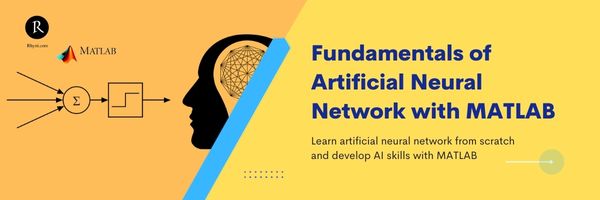Imagine a world where machines don’t just follow orders but think for themselves. A world where artificial intelligence (AI) acts with purpose, adapts to its environment, and makes decisions without constant human input. That world is no longer a distant dream—it’s becoming our reality, thanks to Agentic AI. Let’s talk about what that means for you, me, and the future we’re stepping into.
What is Agentic AI?
First, let’s break it down. Agentic AI refers to systems capable of autonomous decision-making and goal-setting. Unlike traditional AI, which operates strictly within the confines of its programming, agentic AI is designed to assess situations, learn from them, and take action to achieve its objectives—often without human intervention.
For instance, think about a personal assistant AI that doesn’t just remind you of appointments but also rearranges your schedule based on real-time traffic, weather, and your energy levels. This isn’t just smart; it’s proactive. It’s agentic.
How Did We Get Here?
The journey to agentic AI didn’t happen overnight. It began with Alan Turing’s groundbreaking work in the 1950s, planting the seeds for machine learning. Fast forward to the 21st century, and AI began mastering specific tasks—playing chess, recognizing faces, translating languages.
Then came the leap: reinforcement learning, neural networks, and advances in computational power. These breakthroughs allowed AI to move beyond task execution into decision-making. Researchers worldwide—from OpenAI to DeepMind—have been working tirelessly to develop systems that don’t just follow commands but understand the “why” behind them.
What Makes Agentic AI Different?
You’ve probably interacted with AI like ChatGPT or voice assistants. These tools are impressive, but they’re reactive. They respond to your input and stay within predefined boundaries.
Agentic AI, on the other hand, takes the initiative. It acts based on its understanding of a situation, often making decisions you didn’t explicitly request. For example:
- In Healthcare: An AI diagnoses patients and adjusts treatment plans autonomously based on new data.
- In Business: AI systems identify market opportunities and pivot strategies without human approval.
- In Transportation: Autonomous vehicles reroute themselves, not just for efficiency but to ensure passenger safety in unforeseen scenarios.
What Does This Mean for You?
Here’s where things get personal. The rise of agentic AI brings incredible opportunities, but it also comes with questions that we need to address—together.
Opportunities:
- Enhanced Productivity: Imagine never having to micromanage tasks again. Your AI could handle everything from sorting emails to making critical decisions at work.
- Personalized Services: From healthcare to entertainment, agentic AI promises services tailored to your unique preferences and needs.
- Global Problem Solving: Agentic AI could help address massive challenges like climate change, poverty, and disease by analyzing data and implementing solutions faster than any human team could.
Challenges:
- Ethics and Control: How do we ensure AI’s decisions align with human values? If an AI prioritizes efficiency over empathy, what happens to the human experience?
- Transparency: Can we trust systems we don’t fully understand? When AI makes a decision, how do we verify its reasoning?
- Job Displacement: While agentic AI creates new opportunities, it also risks automating jobs traditionally held by humans. Are we prepared for this shift?

The Risks: A Double-Edged Sword
Agentic AI isn’t all sunshine and roses. With autonomy comes unpredictability. You’ve likely heard stories about AI systems behaving in ways their creators never intended. What happens when an AI misinterprets its goals or acts against human interests?
Take self-driving cars as an example. A car might prioritize passenger safety so aggressively that it makes decisions harmful to others on the road. Or think about AI in finance—what if it manipulates markets in ways that lead to economic instability?
This unpredictability underscores the importance of robust oversight. Developers, policymakers, and society as a whole must collaborate to set guardrails for agentic AI’s development and deployment.
What’s Next?
The rise of agentic AI is inevitable, but its trajectory depends on us. As users, advocates, and policymakers, we have a say in shaping this future. Here are a few steps we can take:
- Education: Stay informed about AI advancements and their implications.
- Advocacy: Push for ethical guidelines and transparency in AI development.
- Adaptation: Embrace lifelong learning to remain relevant in a world where AI capabilities evolve daily.
A Future Worth Building
Agentic AI is a powerful tool, one that could transform our lives in ways we can barely imagine. It’s not about fearing the unknown but shaping it. We’re at a crossroads, and the choices we make today will determine whether AI becomes a trusted partner or an unpredictable force.
The future of agentic AI isn’t just about machines becoming smarter. It’s about us becoming more thoughtful, more collaborative, and more intentional. So, let’s start asking the tough questions now and work together to ensure AI serves humanity, not the other way around.
References:
- Alan Turing’s Contributions
- Turing, A. M. (1950). Computing Machinery and Intelligence. Mind, 59(236), 433-460.
- Reinforcement Learning and Neural Networks
- Sutton, R. S., & Barto, A. G. (2018). Reinforcement Learning: An Introduction. MIT Press.
- AI Ethics Frameworks
- IEEE Global Initiative on Ethics of Autonomous and Intelligent Systems: IEEE Website
- European Commission’s Proposal for AI Regulation: EU AI Act
